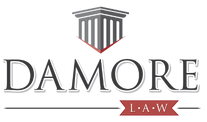Have you ever wondered what exactly sets condos apart from traditional apartments? Or perhaps you’re seeking a housing option that offers a blend of community living and homeownership? If you’re curious about condos and the unique lifestyle they offer, then keep reading. In this post, we’ll cover the definition of a condo, the types available, and everything else you need to know to help you make an informed decision about your future housing choice.
The Definition of a Condo
The simplified definition of a condo is a type of housing where individuals own a unit within a larger complex or building. Residents share ownership of common areas and amenities, such as swimming pools, gyms, and workspaces. Each owner holds title to their unit and has the right to sell, rent, or mortgage it.
Condos vs. Apartments: What’s the Difference?
While condos and apartments may seem similar, there are key differences. Apartments are typically owned by a single entity, such as a corporation or individual, who rents out individual units to tenants. Condos, on the other hand, are individually owned by residents who have purchased their units. Condo owners have more control over their living space, can make modifications, and have a stake in the overall management and decision-making process of the condominium association.
The Pros and Cons of Buying a Condo
Now that you understand the true definition of a condo, let’s explore some of the benefits and disadvantages of buying a condo to help guide your purchasing decision.
Pros:
- Amenities and Services: Condos often offer shared amenities, such as fitness centers, parking areas, and security services, providing convenience and enhancing your lifestyle.
- Maintenance: The condo association is responsible for maintaining common areas, which can save you time and effort compared to homeownership.
- Community Living: Condo living fosters a sense of community and can provide opportunities for social interactions and shared experiences.
Cons:
- Association Fees: Condo owners are typically required to pay monthly association fees to cover maintenance costs, insurance, and shared expenses.
- Rules and Regulations: Living in a condo means following certain rules and regulations set by the condominium association, which may include restrictions on pet ownership, noise levels, or modifications to your unit.
- Lack of Privacy: Living in close proximity to other residents means you may have less privacy compared to a detached home.
Types of Condos
- High-Rise Condos: These are located in tall buildings with multiple floors, often offering breathtaking views and a luxurious living experience.
- Low-Rise Condos: These are situated in buildings with fewer floors, providing a more intimate and community-oriented living environment.
- Townhouse Condos: This style offers a blend of single-family home features and condo convenience. They typically have multiple levels and may have their own entrances.
Do You Need A Lawyer When Purchasing a Condo?
When buying a condo, it is a good idea to engage the services of a qualified real estate lawyer. They will review the condominium documents, including the bylaws, declaration, and rules and regulations, to ensure they align with your expectations and protect your rights as a buyer. Additionally, a lawyer can help you understand any potential legal issues, negotiate the terms of the purchase agreement, and guide you through the closing process.
Whether you’re seeking convenience, community, or shared amenities, condos offer an appealing choice for many individuals. Consider your needs, weigh the advantages and disadvantages, and make an informed decision that aligns with your lifestyle.
Considering buying a condo and need legal guidance? DaMore Law is here to assist you every step of the way. Our experienced team can review crucial documents, negotiate terms, and ensure your rights are protected throughout the process. Contact us to set up an appointment.

